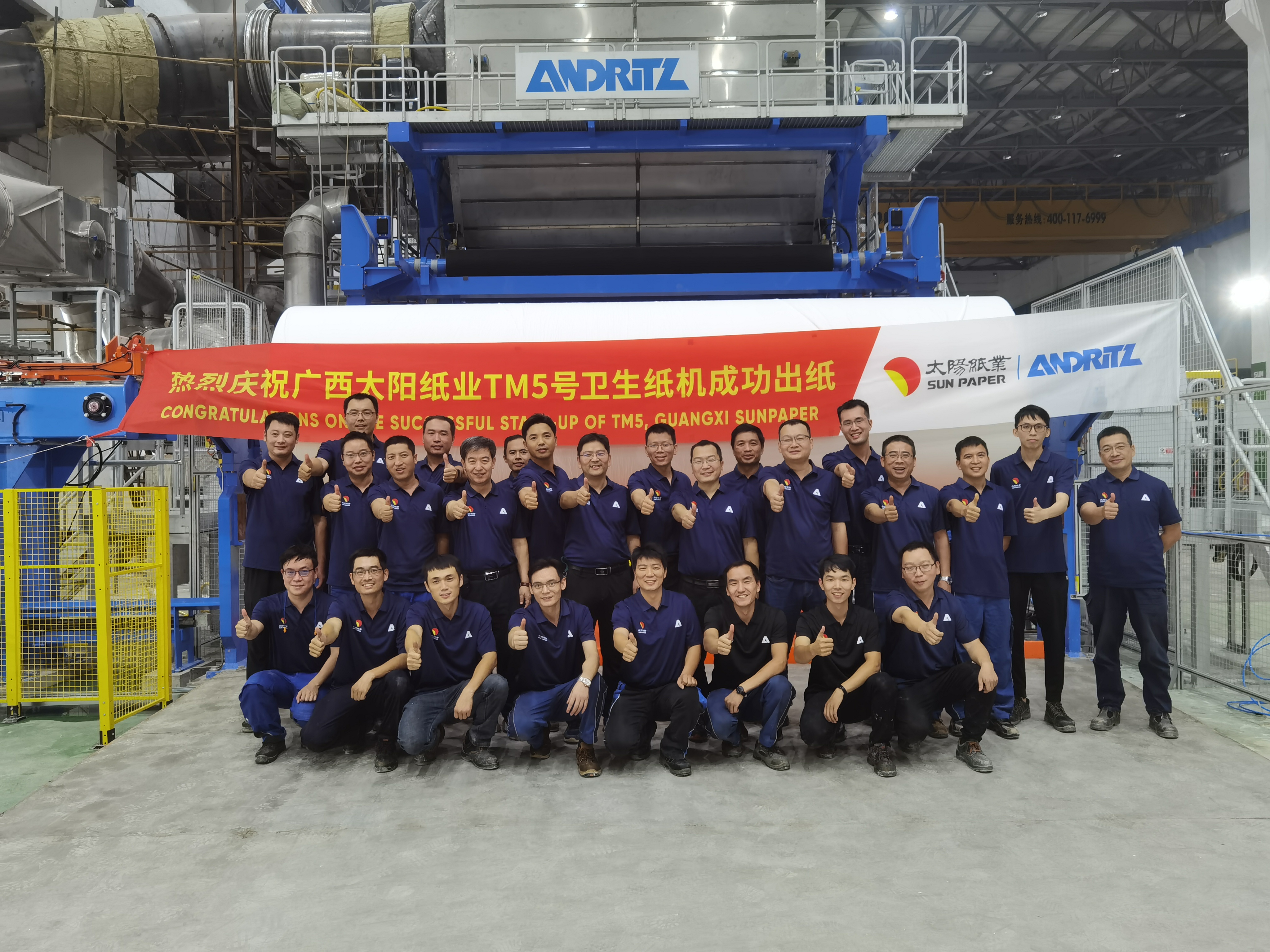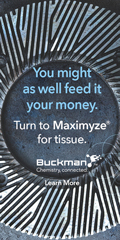
| Archive/Subscribe | TAPPI.org | Advertise | TAPPI Press Catalog | December 2021 |
ANDRITZ Starts-up First of Two Tissue Machines Delivered to Guangxi Sun Paper's Mill, Beihai City, China
International technology group Andritz has successfully started up one of the two PrimeLineTM W 2000 tissue machines delivered to Guangxi Sun Paper, China, for its mill in Beihai City, Guangxi Province. The second tissue machine (TM6) is expected to be started up by the end of this year. The tissue machine (TM5) has a design speed of 2,000 m/min, a working width of 5.65 m, and a capacity of 60,000 t/a. To enable energy-efficient production, it is equipped with a large suction press roll, an 18 ft. PrimeDry Steel Yankee with head insulation, and a re-evaporation system. For optimum end-product quality, forming fabrics and press felts by Andritz Fabrics and Rolls were installed. The scope of supply also included FibreSolve FSV pulpers, the paper machine approach flow systems as well as broke handling, fiber recovery, and automation systems. Ying Guangdong, vice general manager and chief engineer of the Sun Paper Group, says: “With more than 20 years’ of successful cooperation with Andritz, we know their capabilities very well and rely on their innovative solutions for sustainable, high-quality tissue production. This project went smoothly and very swiftly, which shortened our payback time remarkably.” Gary Beckingham, vice president and general manager for Asia in the Paper, Fiber and Recycling Division at Andritz, adds: “Due to the excellent teamwork, we succeeded in setting a new benchmark. It took only 12 months from project kick-off to the first paper on reel and only 10 days for start-up and commissioning. We always try our best to improve our customers’ profitability and increase their return on investment.” Guangxi Sun Paper is part of the Sun Paper Group. It was founded in 2019 with the aim of establishing an integrated pulp and paper mill in Beihai City. The new greenfield mill will presumably have a total pulp and paper capacity of 3.5 million t/a and will be built in two phases over approximately four years. |



